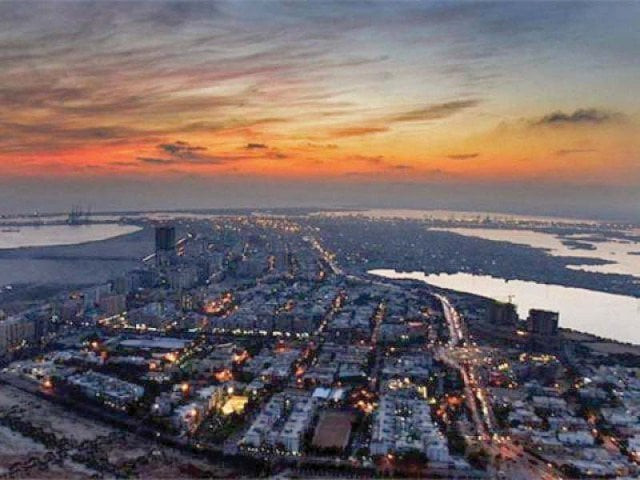Pace of macroeconomic stabilisation slows down
Govt looks for alternative means to ease external-sector constraint, avoid political backlash

Govt looks for alternative means to ease external-sector constraint, avoid political backlash.
PHOTO: FILE
On the monetary front, the State Bank of Pakistan (SBP) reacted fast and jacked up interest rate to 10.25% in quick successions. This reaction of the SBP will affect the fiscal side a great deal since the government has to borrow from the central bank to finance its deficit. Jacking up the interest rate in quick succession will increase debt servicing cost of the government which, in turn, increases the fiscal deficit. The two significant expenditure categories are debt and defence, which together will gobble up around 70% of the tax revenue. On this basis, the fiscal deficit will hover around 6% of GDP in FY19.
The optimistic government set a fiscal deficit target of 5.1%, which could not be achieved under the current circumstances where growth in tax revenue is lower than the nominal GDP growth. This also implies that real sector of the economy has started to slow down.
On this basis, we may foresee certain bankruptcies and this may increase non-performing loans (NPLs). That is the reason Moody’s has downgraded the rating of the banking sector since it expects financial tremors going forward.
On the fiscal front, the government has reduced the income tax exemptions given to the salaried class, which were announced in May 2018. In addition to this, it revised up the gas tariff by introducing certain slabs in the mini-budget unveiled in October 2018.
Gas prices were kept deliberately low by the previous government to maintain political constituency despite the fact that the liquefied natural gas (LNG) was imported from Qatar. Since the agreement has been negotiated in dollars, the bouts of depreciation will make LNG imports expensive.
Gone are the days of domestic gas production, which was available at throwaway prices. Successive governments squandered this cheap resource by engaging in excessive consumption at prices lower than market prices and even encouraged transportation through this resource.
Despite the scarcity of gas in the country, the government exempted certain export sub-sectors from the tariff hike. Furthermore, the upward revision in the tariff was not fully passed on to the fertiliser sector keeping in view its importance for the agriculture sector and to save precious foreign exchange.
Fall in exports worrying: Charter of economy – the way forward
Avoiding the political backlash, the government has taken a temporary pause in pursuing stabilisation measures. It could not increase electricity prices since power tariff is another politically sensitive issue. Similarly, the government could not revise water tariff upwards despite the fact it has become scarce, especially in metropolitan urban centres.
Boost to economy: Pakistan to export live donkeys to China
In addition to these, it could not increase bus fares of metros and has to dish out subsidy.
Recently, the government has shown some courage by withdrawing the subsidy for Hajj operation since it will affect around 0.2 million people, which is a diverse segment of the population, though lobbyists have started to pressurise the government. However, the government is trying to counter this on eligibility grounds.
In short, the government is facing an external-sector constraint and has to borrow from bilateral and multilateral sources to ease this constraint. The ongoing discord with the International Monetary Fund (IMF) is about the pace of macroeconomic stabilisation measures.
Since the IMF has asked for harsh macroeconomic adjustment, the government has been trying to look for alternative arrangements through friendly countries. The purpose is to slow down the pace of adjustment to avoid opposition of political parties and the masses.
The writer is an assistant professor of economics at SDSB, Lahore University of Management Sciences (LUMS)
Published in The Express Tribune, February 18th, 2019.
Like Business on Facebook, follow @TribuneBiz on Twitter to stay informed and join in the conversation.



















COMMENTS
Comments are moderated and generally will be posted if they are on-topic and not abusive.
For more information, please see our Comments FAQ